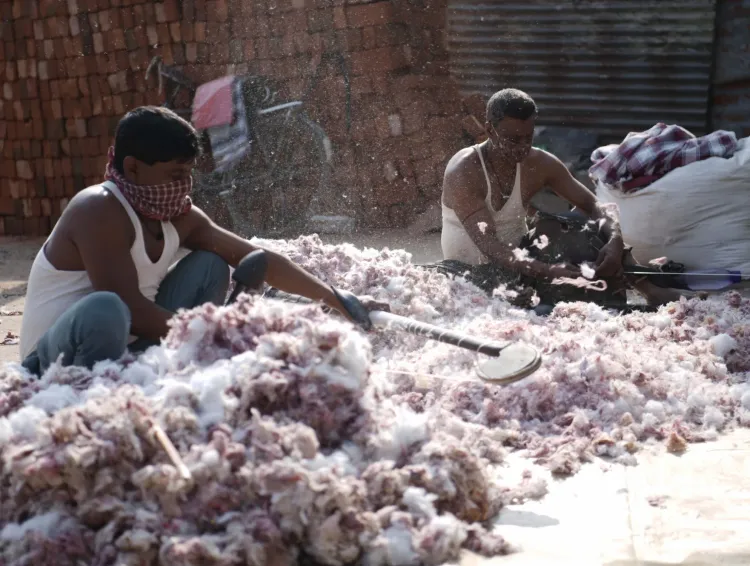How Will India's Downstream Textile Sector Benefit from QCO Revocation Amid US Tariffs?

Synopsis
Key Takeaways
- Revocation of QCO lowers raw material costs.
- Improves competitiveness for readymade garments.
- Benefits export-oriented textile units.
- Enhances supply of affordable imported yarn.
- Revenue growth for polyester yarn makers expected at 3-5 percent.
New Delhi, Nov 20 (NationPress) The government's recent move to revoke the Quality Control Order (QCO) on various polymer and fiber intermediates is set to significantly lower raw-material expenses for the readymade garments industry, according to a Thursday report.
This initiative will provide relief to segments of the downstream textiles market impacted by tariffs, particularly benefiting the readymade garments sector by allowing access to more competitively priced raw material imports, as indicated by Crisil Ratings.
According to the rating agency's evaluation of 20 polyester yarn manufacturers, which together account for 40-45 percent of the sector's revenue, this change is expected to intensify competition among upstream polyester yarn producers.
The Ministry of Chemicals and Fertilisers officially withdrew the QCO on November 12, 2025, thereby eliminating the requirement for mandatory BIS certification for imported yarn.
This certification had been enforced in October 2023 to limit cheaper polyester imports from China.
Gautam Shahi, Director at Crisil Ratings, commented, “Given that polyester yarn serves as a more affordable alternative to cotton yarn, it is widely utilized in the production of value and mid-premium garments. The elimination of the QCO should grant the downstream textile sector a much-needed reprieve, particularly as it has faced challenges due to high export tariffs to the US.”
This decision is anticipated to broaden the supply of affordable imported yarn, offering support to garment and home-textile units focused on exports, especially as they deal with a substantial 50 percent tariff on shipments to the United States, the report noted.
It is essential to highlight that the readymade garment sector earns approximately 25-30 percent of its revenue from exports, with a significant portion directed towards the US, making it the most likely beneficiary, while home textiles—more reliant on cotton—will experience limited advantages.
Crisil further noted that due to the competition from imported yarn and decreased crude oil prices, revenue growth for polyester yarn manufacturers is likely to remain stagnant at 3-5 percent in the upcoming fiscal year, despite a potential increase in volume resulting from the lowered GST rate.









